Climate Related
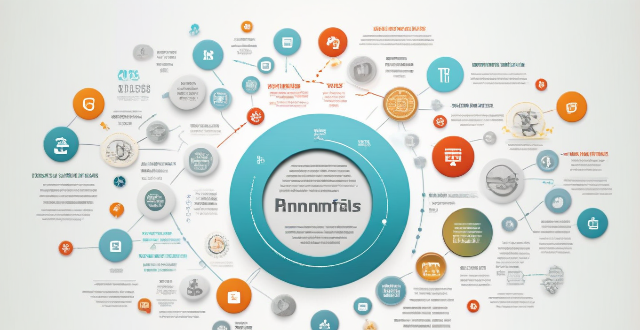
Why is climate-related financial disclosure important for investors ?
Climate-related financial disclosure is crucial for investors as it helps manage risks, identify investment opportunities, promote transparency and accountability, and ensure regulatory compliance. By disclosing their climate-related risks and opportunities, companies can take proactive steps to mitigate them and reduce their impact on the business. Additionally, climate-related financial disclosure helps identify potential investment opportunities, such as renewable energy projects and sustainable agriculture practices. Transparency and accountability are also promoted through climate-related financial disclosure, which can enhance a company's reputation and relationships with stakeholders. Finally, regulatory requirements are becoming increasingly important, and companies that fail to disclose their climate-related risks and opportunities may face fines or penalties.

How does TCFD help in managing climate-related risks ?
The Task Force on Climate-related Financial Disclosures (TCFD) is a global initiative aimed at helping companies manage climate-related risks through consistent disclosure. The TCFD framework guides businesses in identifying and assessing these risks, integrating them into business planning, ensuring transparency through reporting and disclosure, conducting scenario analysis and stress testing, and recognizing potential opportunities arising from the transition to a low-carbon economy. By following this structured approach, companies can protect themselves from negative impacts of climate change and position themselves advantageously in emerging markets related to climate solutions.

What is the TCFD (Task Force on Climate-related Financial Disclosures) ?
The Task Force on Climate-related Financial Disclosures (TCFD) is an initiative by the Financial Stability Board aimed at standardizing how companies report climate-related financial impacts. It covers four main areas: governance, strategy, risks and opportunities, and metrics and targets. By adhering to TCFD guidelines, companies can enhance transparency, improve risk management, align with sustainable development goals, and boost their reputation among stakeholders.

How do climate-related CSR efforts affect a company's reputation and consumer perception ?
The text discusses the impact of climate-related corporate social responsibility (CSR) efforts on company reputation and consumer perception. It emphasizes that CSR has become essential for modern businesses, especially in terms of environmental responsibility. The importance of reputation and perception is highlighted, with brand image, investor confidence, stakeholder engagement, consumer loyalty, market differentiation, and risk mitigation being key factors. The article then explores the positive effects of climate-related CSR efforts on reputation and perception. These include public recognition, industry leadership, alignment with values, a trustworthy brand image, social responsibility, and innovative approaches. However, potential challenges such as greenwashing accusations, unmet expectations, negative scrutiny, skepticism, cost pass-through concerns, and inconsistency issues can also arise. In conclusion, the article stresses the significance of climate-related CSR efforts in shaping a company's reputation and consumer perception. To maximize benefits and minimize risks, companies must ensure their climate-related CSR strategies are genuine, transparent, and consistent with their overall business operations.

How can citizens influence government policies related to climate change ?
Citizens can significantly influence government policies on climate change through various means like voting for pro-climate candidates, public advocacy, education, community actions, making sustainable consumer choices, collaboration, legal measures, digital engagement, research funding, financial decisions, educational integration, corporate responsibility, and international cooperation.

Can international cooperation help mitigate climate-related conflicts ?
The text discusses how climate change can exacerbate conflicts and the role of international cooperation in mitigating these impacts. It outlines various challenges posed by climate change, such as water scarcity, food insecurity, natural disasters, and economic instability, and how they can lead to conflicts. The text then explores the potential roles of international cooperation, including diplomacy, technology transfer, financial support, education, and capacity building. It also highlights challenges to achieving effective international cooperation, such as political will, economic disparities, and cultural differences. Finally, the text concludes that international cooperation is essential in addressing climate-related conflicts and that collaborative efforts can lead to a more resilient and equitable world.

How does the perception of climate-related risks vary across different cultures and societies ?
The perception of climate-related risks varies across different cultures and societies due to factors like historical experiences, cultural values, socioeconomic conditions, education levels, access to information, political landscapes, and religious beliefs. Understanding these variations is crucial for developing effective strategies to address climate change globally.

What are the challenges faced by the insurance industry in addressing climate change ?
The insurance industry faces several challenges in addressing climate change, including data-related issues, regulatory and legal concerns, and operational difficulties. These challenges can be broadly classified into three categories: data-related challenges, regulatory and legal challenges, and operational challenges. Data-related challenges include insufficient historical data and lack of standardization in collecting and analyzing climate-related data across the insurance industry. Regulatory and legal challenges involve lack of clarity in regulations governing how insurers should account for climate change in their risk assessments and pricing strategies, as well as liability concerns due to increased natural disasters and extreme weather events. Operational challenges include limited capacity to model climate risks, inadequate infrastructure for disaster response, and difficulty in pricing policies accurately. To overcome these challenges, insurers need to work together and invest in research and development to develop more sophisticated models and hire experts who can help them understand and manage climate risks effectively. They also need to continuously monitor climate trends and adjust their pricing strategies accordingly. By doing so, the insurance industry can play a vital role in managing the risks associated with climate change.

What are some examples of successful interventions in climate-related conflicts ?
The text discusses how climate change contributes to conflicts around the world and presents several successful interventions that have mitigated these conflicts. These interventions include Integrated Water Resource Management (IWRM), Renewable Energy Projects, Climate Change Education and Awareness Programs, Early Warning Systems and Disaster Risk Reduction, and International Cooperation and Legal Frameworks. The objective of these interventions is to manage resources sustainably, reduce dependence on fossil fuels, raise awareness about climate change impacts, establish effective early warning systems, and foster international cooperation. The implementation of these interventions has resulted in success stories such as reducing tensions between neighboring countries, providing sustainable energy sources, building resilience among vulnerable communities, saving lives during natural disasters, and promoting global cooperation in addressing climate change. Overall, the text emphasizes the importance of proactive measures to address climate-related conflicts effectively and promote peace and cooperation.

What skills will be in demand for jobs related to climate change adaptation and mitigation ?
The fight against climate change requires a diverse set of skills, including data analysis and modeling, sustainable design, renewable energy, environmental science, urban planning, risk management, communication, education and training, and project management. These competencies are in high demand for jobs related to climate change adaptation and mitigation.

How have climate-related risks influenced the growth of impact investing ?
Climate-related risks have significantly influenced the growth of impact investing by making investors more aware of the potential financial risks associated with climate change. This has led to an increased demand for investments that not only generate financial returns but also address environmental and social issues. Impact investing, which focuses on creating positive social and environmental impact alongside a financial return, has emerged as a popular investment strategy in response to this trend. Key factors driving the growth of impact investing include increased awareness of climate change, regulatory pressure, consumer demand for sustainable products and services, financial opportunities in sustainable industries, and alignment with ethical values. As these trends continue to shape the global economy, we can expect impact investing to become an increasingly important part of mainstream finance.

How can we address the challenges posed by climate-related displacement and migration ?
The growing challenge of climate-related displacement and migration, or "climate migration," is intensifying due to the impacts of climate change such as sea-level rise, extreme weather events, droughts, and more. Addressing this issue requires a comprehensive approach that includes strengthening resilience through infrastructure development, sustainable agriculture, and community education; establishing legal and policy frameworks for clear policies on displacement, international cooperation, and domestic legislation; providing humanitarian assistance and support through emergency relief, long-term support systems, and health services; creating financial mechanisms and investments like climate funds, insurance schemes, and compensation for losses; and planning and coordinating efforts through forecasting and early warning systems, coordinated response plans, and urban and rural planning. By implementing these strategies, we can build a more resilient future and better support vulnerable populations affected by climate change.

How do climate-related concerns influence consumer choices in the food industry ?
Climate change is a pressing issue that affects various aspects of life, including the food industry. As consumers become more aware of their environmental impact, they are increasingly making choices based on climate-related concerns. This shift in consumer behavior has significant implications for food producers, retailers, and the entire supply chain. Factors influencing consumer choices include environmental sustainability, health considerations, economic factors, ethical concerns, personal values and beliefs. The impact on the food industry includes product development, supply chain management, marketing strategies, retail practices, and policy influence. Businesses that adapt to these changing preferences by embracing sustainability and transparency are likely to gain a competitive edge in the marketplace. It is essential for companies to anticipate and respond to these trends to maintain relevance and profitability while contributing positively to the environment.

How is the tourism industry adapting to climate change-related risks and opportunities ?
The tourism industry, a significant contributor to the global economy, has been profoundly affected by climate change. The sector is now compelled to adapt to the associated risks and opportunities in various ways, including developing disaster management plans, building more resilient infrastructure, promoting sustainable tourism practices, diversifying offerings to attract tourists throughout the year, adopting green initiatives, developing nature-based tourism activities, creating wellness retreats, and providing educational programs about the connection between climate change and health. By implementing innovative solutions and embracing sustainability, the sector aims to mitigate the negative impacts of climate change and ensure its long-term viability.

How do extreme weather events related to climate change affect national security ?
This analysis explores the connection between extreme weather events and national security, discussing how climate change affects various sectors such as food supply, economy, public health, defense, migration, sovereignty, and cybersecurity. It emphasizes the need for integrated strategies to address these challenges and promote societal resilience against climate change impacts.

How can we involve marginalized communities in decision-making processes related to climate policy and action ?
Engaging marginalized communities in climate policy and action is crucial for their vulnerability to climate change, traditional knowledge, and promoting equity. Identify community leaders, incorporate local knowledge, enhance access to information, and foster collaboration. This ensures active involvement and equitable outcomes.

How can companies implement TCFD guidelines in their financial statements ?
The Task Force on Climate-related Financial Disclosures (TCFD) was established to develop global climate-related financial disclosures for companies. Implementing TCFD guidelines in financial statements involves understanding the framework, assessing climate-related risks and opportunities, integrating this information into financial reporting, and engaging stakeholders. Companies should disclose governance, identify risks and opportunities, provide strategies and metrics, and present financial impacts of climate change. They should also assess physical and transition risks, integrate climate-related metrics into financial statements, revise risk disclosures, and provide scenario analysis. Engaging stakeholders and providing clarity on assumptions and methodologies used in scenario analysis is crucial. By following these steps, companies can provide investors and stakeholders with a clear picture of their exposure to climate-related risks and opportunities.

What are the key recommendations of the TCFD framework ?
The Task Force on Climate-related Financial Disclosures (TCFD) was established by the Financial Stability Board (FSB) in December 2015. The TCFD's objective is to provide clarity, consistency, and comparability in the information reported by companies about their climate-related risks and opportunities. The framework aims to help investors, lenders, insurers, and other stakeholders understand how companies are managing these risks and opportunities. Here are the key recommendations of the TCFD framework: Companies should describe their governance arrangements for managing climate-related risks and opportunities. This includes clear assignment of responsibility for oversight of these issues, linkage to company strategy and risk management processes, and integration with other ESG (Environmental, Social, and Governance) reporting. Companies should identify and report on both the potential impacts of climate change on their business (risks) and the opportunities that may arise from transitioning to a lower carbon economy. This includes direct physical and transition risks, indirect risks through the supply chain or customer behavior, and opportunities related to new markets, products, or services. Companies should describe their approach to managing climate-related risks and opportunities. This includes short-term and long-term strategy considerations, alignment with corporate goals and risk appetite, and use of scenario analysis and stress testing. Companies should disclose quantitative metrics and targets related to climate risks and opportunities. This includes emissions data, including Scope 1, 2, and 3 emissions, energy usage and efficiency improvements, and carbon intensity reduction targets. Companies should disclose relevant financial implications of climate-related risks and opportunities. This includes impact on financial statements, capital allocation decisions influenced by climate factors, and insurance coverage for climate-related risks. Companies are encouraged to use scenario analysis to illustrate the potential financial impacts of different climate pathways. This helps stakeholders understand how companies are prepared for various future climate scenarios. While not mandatory, the TCFD recommends obtaining external assurance on the information disclosed, where material. This enhances the reliability and credibility of the disclosures. Companies should also disclose non-financial exposures related to climate change, such as reputational risks or legal and regulatory challenges. Companies are encouraged to report on their strategies for mitigating climate risks and adapting to changing climate conditions. This includes investments in renewable energy, energy efficiency measures, and resilience planning. The TCFD encourages companies to use consistent metrics and methodologies to enable comparability across different organizations and industries. This aids in benchmarking and tracking progress toward climate goals.
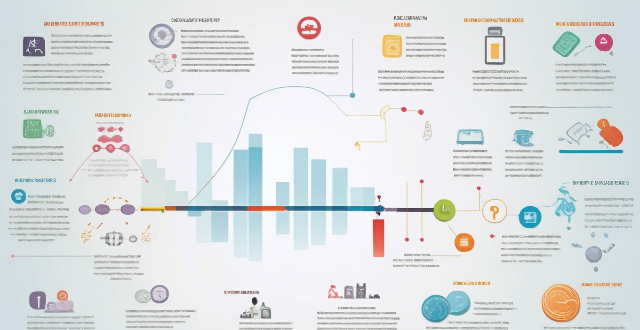
How does TCFD affect corporate reporting ?
The Task Force on Climate-related Financial Disclosures (TCFD) has significantly impacted corporate reporting by requiring enhanced disclosure of climate-related risks and opportunities. Companies must identify, assess, and manage these risks, including through scenario analysis and governance processes. They also need to disclose how climate change affects their business model and strategy, as well as the alignment of their portfolio with a low-carbon transition. Operational performance metrics such as emissions data and energy use must be reported, along with information on positive impacts and innovation related to climate action. Overall, the TCFD guidelines aim to promote transparency and encourage companies to integrate sustainability into their financial decision-making processes.

What is the significance of climate-related disclosures for investors ?
This article discusses the significance of climate-related disclosures for investors, highlighting how they help in risk management, opportunity identification, and alignment with sustainable investing goals. It outlines key elements of such disclosures including emissions data, climate risk assessments, climate change strategies, and governance and oversight. The article also suggests best practices for investors to integrate these disclosures into their investment analysis and collaborate with companies to improve them.

What are some examples of successful TCFD implementation by companies ?
The Task Force on Climate-related Financial Disclosures (TCFD) was established by the Financial Stability Board (FSB) in 2015 to develop a framework for voluntary climate-related financial risk disclosures. Since then, many companies have successfully implemented the TCFD recommendations, providing stakeholders with valuable information about their exposure to climate-related risks and opportunities. Here are some examples of successful TCFD implementation by companies: **Unilever** has conducted a comprehensive assessment of its climate-related risks, including transition and physical risks. The company has identified potential impacts on its supply chain, operations, and products due to climate change. Unilever publishes detailed reports on its website, outlining its greenhouse gas emissions, water withdrawal, and waste generation. The company also discloses its progress toward sustainability targets, such as reducing carbon emissions and increasing renewable energy usage. Unilever actively engages with stakeholders, including investors, customers, and employees, to understand their concerns and expectations regarding climate-related issues. This helps the company to identify and prioritize areas for improvement in its sustainability efforts. **Iberdrola** has integrated climate risk management into its overall risk management framework. The company assesses both short-term and long-term climate-related risks and opportunities, considering factors such as changes in regulations, market trends, and technological advancements. Iberdrola provides detailed information about its greenhouse gas emissions, energy consumption, and renewable energy production. The company also discloses its strategies for adapting to climate change, such as investing in renewable energy projects and developing new technologies to reduce emissions. Iberdrola engages with stakeholders through various channels, including annual sustainability reports, social media, and public forums. The company seeks feedback from stakeholders to improve its sustainability performance and ensure that it aligns with societal expectations. **Microsoft** has conducted a thorough assessment of its climate-related risks, focusing on both direct and indirect impacts. The company has identified potential threats to its infrastructure, supply chain, and customer demand due to climate change. Microsoft publishes detailed reports on its greenhouse gas emissions, energy consumption, and water usage. The company also discloses its progress toward sustainability targets, such as reducing carbon emissions and increasing renewable energy usage. Microsoft engages with stakeholders through various channels, including annual sustainability reports, social media, and public forums. The company seeks feedback from stakeholders to improve its sustainability performance and ensure that it aligns with societal expectations.
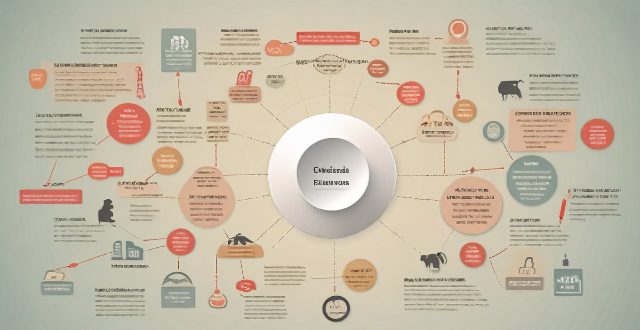
What role do auditors play in ensuring the accuracy of TCFD disclosures ?
Auditors play a crucial role in ensuring the accuracy of Task Force on Climate-related Financial Disclosures (TCFD) disclosures. Their key responsibilities include verifying information, assessing processes, and reporting findings to management and interested parties. By conducting audit procedures such as reviewing internal controls and testing their effectiveness, auditors can help ensure that companies provide reliable and transparent information about their climate-related risks and opportunities. This is essential for investors, regulators, and other stakeholders to make informed decisions.
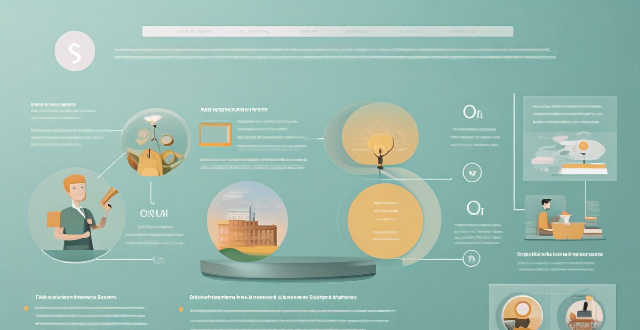
How do TCFD disclosures improve transparency and accountability in business practices ?
The Task Force on Climate-related Financial Disclosures (TCFD) was established by the Financial Stability Board (FSB) to develop a framework for companies to disclose information about their impact on, and from, climate-related risks. These disclosures play a crucial role in enhancing transparency and accountability in business practices. By adhering to TCFD recommendations, businesses are compelled to communicate openly about their strategies and plans related to climate change. This includes identifying and explaining the potential impact of climate change on their operations and disclosing any financial risks or opportunities that may arise due to climate change. Investors increasingly demand clarity on how companies are addressing climate change. TCFD disclosures provide this clarity, fostering trust among investors and other stakeholders. The TCFD framework sets clear benchmarks for disclosure, making it easier for stakeholders to assess a company’s performance against industry standards. This promotes comparative analysis and performance evaluation. As the TCFD gains momentum, companies are incentivized to comply not just for regulatory reasons, but also to maintain their reputation and competitive edge in the market. Knowing they must report on climate-related matters can push companies to innovate, seeking new ways to reduce environmental impacts and adapt to climate risks. With TCFD disclosures, companies are prompted to consider long-term implications of their actions, leading to more sustainable business models. The disclosures align businesses with the United Nations Sustainable Development Goals (SDGs), particularly those related to climate action and life on land. TCFD provides a global standard for reporting, ensuring that companies operating across multiple jurisdictions can be assessed consistently. Through TCFD disclosures, companies can share successful strategies and practices related to climate risk management, fostering a collaborative approach to addressing climate change. Disclosures can reveal areas where companies might need partners—whether in technology, research, or other sectors—to achieve their climate goals.
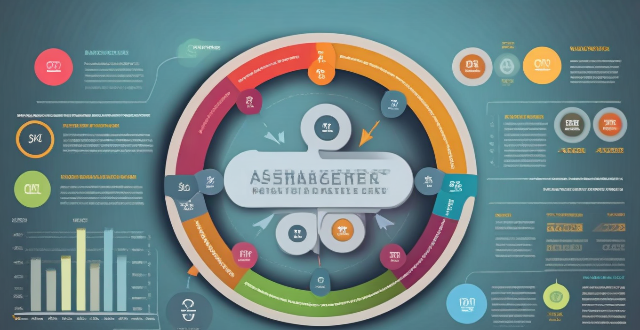
How can investors use TCFD disclosures to make informed investment decisions ?
The Task Force on Climate-related Financial Disclosures (TCFD) provides a framework for companies to disclose information about their climate-related risks and opportunities. Investors can use TCFD disclosures to assess climate risks, evaluate sustainability goals, identify growth opportunities, compare companies within the same sector, and make more informed investment decisions. By considering climate-related risks and opportunities alongside traditional financial metrics, investors can gain a more comprehensive understanding of a company's prospects and make more informed investment decisions.

How does TCFD contribute to achieving the United Nations Sustainable Development Goals ?
The Task Force on Climate-related Financial Disclosures (TCFD) contributes significantly to achieving the United Nations Sustainable Development Goals (SDGs). The TCFD is a global initiative that aims to provide clarity and consistency in how companies report climate-related information. This initiative helps investors, lenders, insurers, and other stakeholders understand the risks and opportunities related to climate change. ### **How TCFD Supports the SDGs** #### **1. Promoting Transparency and Accountability:** The TCFD's framework encourages businesses to disclose their environmental impact, which aligns with SDG 12 (Responsible Consumption and Production) and SDG 17 (Partnerships for the Goals). By promoting transparency, TCFD supports businesses in becoming more accountable for their actions, thereby driving sustainable practices within industries. #### **2. Enhancing Risk Management:** Climate-related financial disclosures help identify and manage risks associated with climate change. This directly supports SDG 13 (Climate Action) by encouraging businesses to take proactive steps towards reducing their carbon footprint and adapting to climate change impacts. #### **3. Facilitating Investment in Sustainable Projects:** Through clear and consistent reporting standards, TCFD makes it easier for investors to identify companies committed to sustainability. This can lead to increased investment in projects that support various SDGs, such as renewable energy (SDG 7), clean water and sanitation (SDG 6), and sustainable cities and communities (SDG 11). #### **4. Driving Innovation:** By highlighting the need for companies to adapt to climate change, TCFD indirectly promotes innovation in clean technologies and sustainable business models. This aligns with SDG 9 (Industry, Innovation and Infrastructure) and SDG 12 by fostering innovative solutions that reduce environmental impact while maintaining economic growth. #### **5. Supporting Policy Coherence:** The TCFD's recommendations can guide policymakers in developing coherent policies that support both climate action and sustainable development. This aids in achieving SDG 17 by ensuring that policies are designed to support all SDGs simultaneously. ### **Conclusion** The Task Force on Climate-related Financial Disclosures plays a crucial role in advancing the United Nations Sustainable Development Goals by promoting transparency, enhancing risk management, facilitating sustainable investments, driving innovation, and supporting policy coherence. Through its work, TCFD helps bridge the gap between financial decision-making and environmental stewardship, making it an integral part of the global effort to achieve a sustainable future.

Can regular physical activity prevent age-related diseases ?
The text discusses the potential of regular physical activity to prevent age-related diseases, highlighting its numerous benefits such as improved cardiovascular health, enhanced immune function, better bone density, reduced inflammation, and improved mental health. It further elaborates on how these benefits can specifically prevent or delay the onset of diseases like cardiovascular diseases, diabetes, osteoporosis, cancer, and dementia. The conclusion emphasizes that while regular physical activity can play a significant role in preventing age-related diseases, it should be part of a comprehensive approach to health that also includes a balanced diet, adequate sleep, and stress management.

How has the COVID-19 pandemic highlighted the importance of resilient supply chain management in the face of climate-related disruptions ?
The text discusses the impact of the COVID-19 pandemic on supply chain management and emphasizes the importance of resilient supply chain management to withstand future climate-related disruptions. The pandemic caused significant disruptions in the global supply chain, including disruption of global trade, bottlenecks, shortage of raw materials, and labor shortages. A resilient supply chain is adaptable, diversified, collaborative, and leverages technology to improve efficiency, reduce waste, and increase transparency. These characteristics ensure that the supply chain can withstand not only the current crisis but also future climate-related disruptions.

What role does preparation play in managing exam-related stress ?
Exam-related stress is a common experience for many students, and it can have a significant impact on their performance. However, preparation is one of the most effective ways to manage this stress. In this article, we will explore the role that preparation plays in managing exam-related stress. Preparation is crucial when it comes to managing exam-related stress. It reduces anxiety, increases efficiency, improves performance, and builds resilience. To prepare for exams, start early, create a study plan, review notes and textbooks, practice with past papers, seek help if needed, take care of yourself, stay positive, visualize success, avoid procrastination, and use relaxation techniques. By following these strategies, you can prepare yourself effectively for exams and manage any related stress. Remember, preparation is key to success!

How do low-income countries deal with issues related to climate change and environmental degradation ?
Low-income countries face challenges in addressing climate change and environmental degradation. They focus on building resilience through early warning systems, disaster risk reduction, infrastructure development, and resilient agricultural practices. Community-based approaches involve local communities in decision-making, capacity building, participatory planning, and integrating traditional knowledge. Mitigation efforts include investing in renewable energy, promoting energy efficiency, and implementing sustainable forestry practices. International cooperation involves financial assistance, technology transfer, and capacity building support. Policy frameworks guide actions on climate change and environmental protection through national policies, legislative measures, and public awareness campaigns.

What impact do sports-related charitable activities have on local communities ?
Sports-related charitable activities have a significant impact on local communities by promoting physical fitness, enhancing civic pride, providing educational opportunities, fostering diversity and inclusion, and addressing social issues. These activities bring people together, teach valuable life skills, and promote healthy lifestyles among children and young adults. By getting involved in sports-related charitable activities, we can make a positive difference in our local communities and create a brighter future for all.